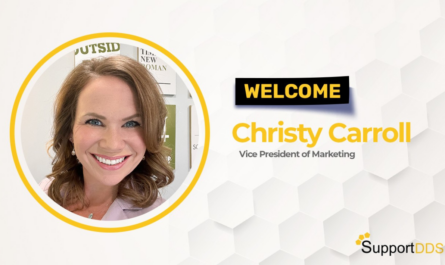A look at mergers and acquisitions in 2020
By Kevin Cumbus
As 2019 ended, the M&A activity in the DSO market was white hot. Every deal that we took to market enjoyed multiple bids and our clients were continually awarded extremely lucrative valuations for their businesses. The buy-side was voracious: there were more buyers than ever and new ones appearing every day willing to pay more and more to enter the DSO space. The debt markets were strong, the money was cheap, and lenders were clamoring for deals. It was truly a sellers’ market and the valuations kept creeping higher and higher.
Internally, our plan was to scale the business as we were picking up more and more mandates on the sell-side and saw an ever-deepening pool of investors and buyers.
When COVID hit, we had hundreds of millions of dollars of deals under LOI marching toward closing. The timing could not have been worse. When dental offices began to shut down across the nation, we were in constant contact with our sellers and their buyers – panic occurred on both sides early on. Over the course of a couple of weeks, we saw three distinct buyer profiles emerge from the pandemic: those eager to close in the face of COVID, a large group who took a wait-and-see approach, and finally a group who could not stomach the risk and bowed out.
No. 1: Eager to close
A handful of smart, brave, well-capitalized buyers continued with the original deal terms and marched forward and closed transactions. These were typically newly formed PE-backed DSOs with balance sheets less burdened with debt. They had high interest coverage ratios on the existing debt and nowhere near breaching any covenants with their lenders. Their lenders stood beside leadership and closed transactions. Except for a handful of large DSOs, these buyers were typically younger businesses and were focused on the specialty spaces of oral surgery and endodontics. Oral surgery and root canals were more essential than hygiene and veneers, and as a result these specialty practices were able to maintain production during the non-essential shutdown and recover more quickly when they reopened.
No. 2: Wait and see
A large number of buyers wanted to close transactions, but due to lack of support from their PE sponsor and lenders, they had to take a wait-and-see position. Leadership at these DSOs who had typically been able to call the shots on M&A transactions faced new hurdles to getting deals done, including: additional diligence requests, continually rolling forward financial statements (Quality of Earnings) for lenders to review the impact of COVID on the target’s business, and mandates from lenders to change deal terms to “get it done,” only to have the lenders change their minds at the 11th hour with last-minute changes, yet again. In some cases, the buyer’s core businesses were so impacted by COVID that they were out of covenant with their lenders and their borrowing window shut down. Buyers offered up words of desire to close deals, but those words ultimately proved hollow due to uncooperative PE sponsors and/or borrows. Although we were able to get most of these closed with the original buyers this year, some deals simply fell apart. Lack of clarity on how to close, deal fatigue from both sides and death by 1,000 cuts on deal terms were the ultimate culprits.
No. 3: Duck and cover
There was a small group of buyers who simply disappeared. They were scared. They took to reading and re-reading the classic children’s fable of “Chicken Little” and implemented the lessons from the book in their deal making. Some of these companies’ core businesses were in shambles and their lenders took control of their businesses. Many were over-levered with too much debt and the COVID-related shutdown of operations was too much to recover from. Some of these businesses will return from the brink, others likely never will.
There was so much talk about “herd immunity” in the past couple of months, but very little discussion of “thinning of the herd.” The thinning of the herd is darker, sadder sister of herd immunity.
There was certainly a thinning of the herd in the DSO space this year. Companies lost revenue and EBITDA, great people lost their jobs, and many dental groups will not survive. It is harsh to say, but this is actually a good thing for the DSO economy. Our economy was on such a tear that every dentist and their brother thought you could slap a couple of dental practices together and flip them to buyers for double-digit multiples. I was getting my hair cut back in January (have not gotten it cut since) and my barber was talking about starting a DSO (kidding, not kidding). As COVID shook all DSOs in the space, there quickly evolved the great divide between the good, the great and the ugly. Pre-COVID, many in the market assumed all DSOs were the same. COVID shined a bright light in some dark places in the DSO world exposing lack of leadership, absurd leverage, and lack of infrastructure. Ultimately, COVID thinned out the herd in a meaningful way. Today, there are fewer DSOs than there were at the beginning of 2020, but the ones that survived are stronger than ever. They are buying more practices and groups and are taking advantage of their competitions’ weaknesses and strengthening their market position.
Although we faced some setbacks in 2020 with buyers, and had some deals fall apart, we’ve been able to connect all clients but one with new buyers. The striking thing is that the deals that our clients now have in place are richer than the ones that they had on the table back in 2019! How is this possible? For one, our clients thrived during COVID. They took the required state mandated steps around shutdown but used the down time to improve:
- Strengthening their core operations by leveling up their team with new doctors, hygienists, assistants, and office workers who had been furloughed by other practices in the area.
- Tackling nagging, long standing “to do’s” (such as cleaning up AR and Patient Credit balances and other revenue cycle management matters) and getting them “to done.”
- Keeping current with their team and maintaining and improving their culture (thanks Zoom!).
When they reopened their doors to see patients, they shot out of the gate. Yes, they heard jeers from buy-side of “pent-up demand” and unsustainable growth, but they simply kept growing and capitalizing on the unique opportunity that COVID created.
While they worked on their business, we worked on the buy-side. We found new buyers for our client who loved the stories of leadership in the face of adversity and double-digit growth year over year in the post-COVID shutdown months.
We closed eight deals in the month of December alone and six of those deals were closed in the last 24 hours of the year! That is a story for another day. All these transactions closed at multiples akin to the pre-COVID days. We have a full slate of new deals coming to market in 2021 and already have two transactions under LOI scheduled to close in Q1 at double-digit multiples. The market is back, but it is different. There are new buyers in the space, smarter legacy buyers and some who still overpromise and under deliver. The key is to know who is who.
As 2020 came to an end, I reflected on the year that was. I was exhausted, elated, and better at my job than I was 12 months prior. Personally, I will remember 2020 as the most challenging and most rewarding year in my professional career.
I am looking forward to 2021 as I am certain that lenders will soon begin to soften, buyers will continue to emerge, and the demand side will return stronger than ever. On the supply side, I anticipate a glut of business owners looking to sell before any tax reform bills get passed. Now that we have a Democratic majority and President, it is all but certain that changes to the tax code are coming (no, taxes are not going down). It will surely be a wild ride. At TUSK, we are ready for anything. We, like you, just survived and thrived in a pandemic.
Bio:
Kevin Cumbus is the President & Co-Founder of TUSK Partners. TUSK helps entrepreneurs START, GROW or SELL their Group Practice or DSO. The team at TUSK has worked on over 900 dental practice transactions. In 2020, TUSK’s clients sold their businesses for an average of 7.0x EBITDA (191% of collections).





